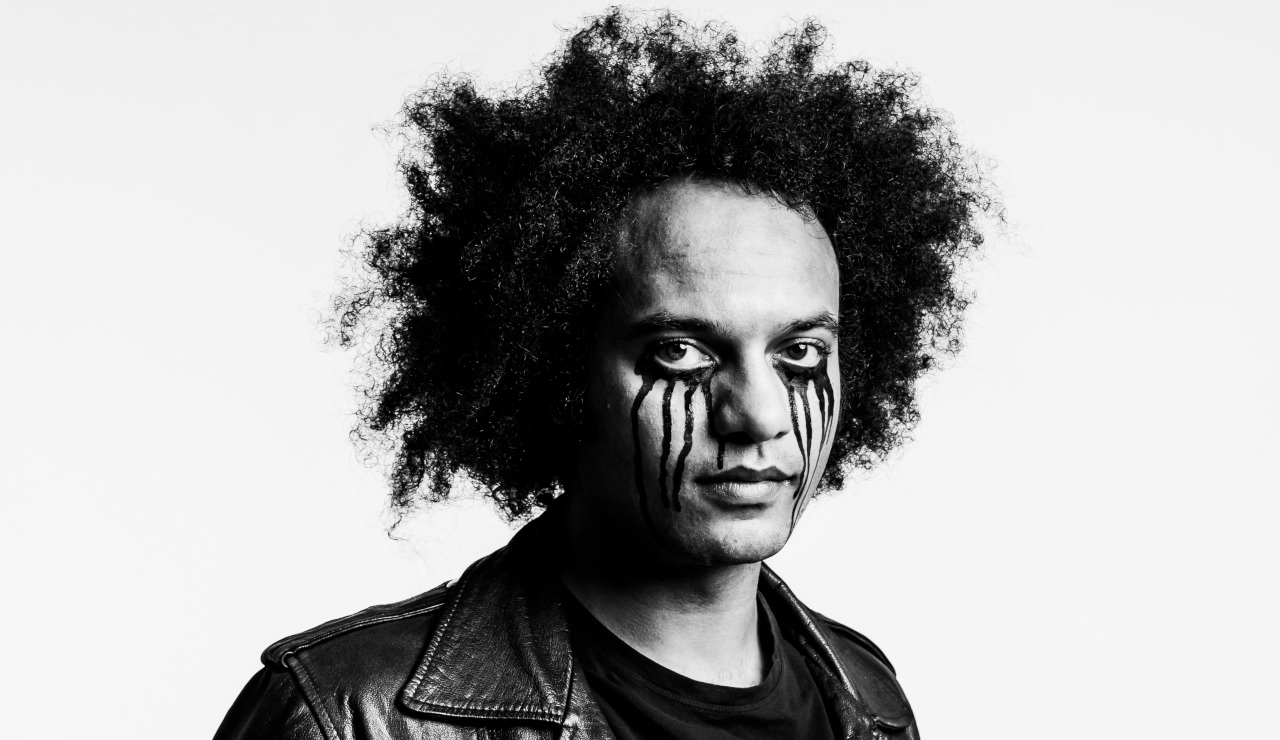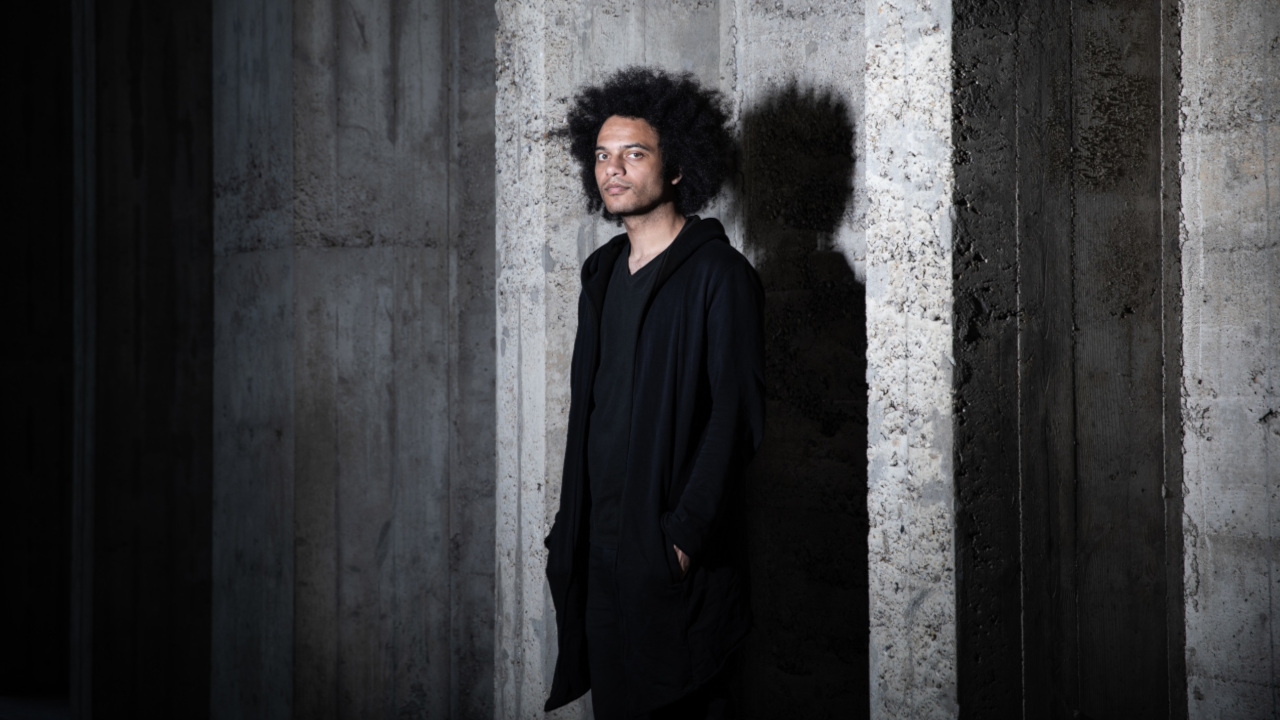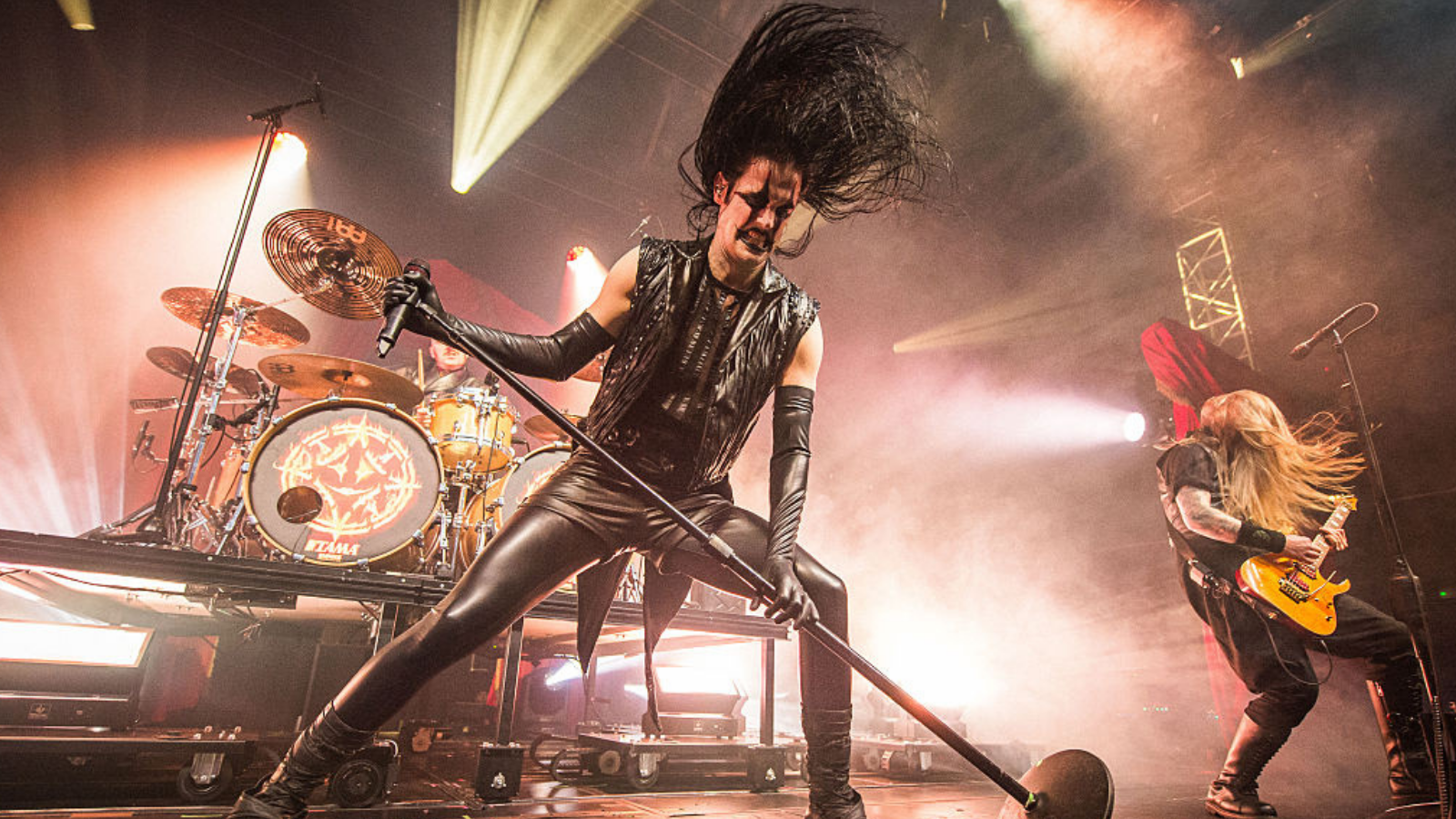Inside the mind of Zeal & Ardor's subversive genius Manuel Gagneux
Zeal & Ardor's Manuel Gagneux: covert activist, subversive satanist and genre-bending genius

Select the newsletters you’d like to receive. Then, add your email to sign up.
You are now subscribed
Your newsletter sign-up was successful
Want to add more newsletters?

Every Friday
Louder
Louder’s weekly newsletter is jam-packed with the team’s personal highlights from the last seven days, including features, breaking news, reviews and tons of juicy exclusives from the world of alternative music.

Every Friday
Classic Rock
The Classic Rock newsletter is an essential read for the discerning rock fan. Every week we bring you the news, reviews and the very best features and interviews from our extensive archive. Written by rock fans for rock fans.

Every Friday
Metal Hammer
For the last four decades Metal Hammer has been the world’s greatest metal magazine. Created by metalheads for metalheads, ‘Hammer takes you behind the scenes, closer to the action, and nearer to the bands that you love the most.

Every Friday
Prog
The Prog newsletter brings you the very best of Prog Magazine and our website, every Friday. We'll deliver you the very latest news from the Prog universe, informative features and archive material from Prog’s impressive vault.
As a child in Switzerland, Manuel Gagneux had fits of rage. The son of a white Swiss biologist and a black American jazz singer, he was acutely aware of not fitting in. Not really Swiss, not really a black kid, he wrestled with the feeling through his primary school years. Perhaps it’s what we hear now in his music. He still doesn’t really know where it came from – just that it was there.
“I was a super-angry kid,” he nods, unhesitating. We’re mid-interview at a London photo studio, a few hours before Hammer’s makeup artist covers him in blood for our shoot. Until now his responses have been full of self-aware humour; friendly and engaging, if a little hard to pin down. Now, for a moment, he’s serious.
“It kind of stopped when I was 11. And that was also about the time when I started playing music. So guess it is my… ‘balance point’?” He breaks into giggles. “I don’t know. You can edit that more eloquently!”
In an era where celebrity mystique often feels all but dead, the 33-year-old is something of an enigma. From early experiences at back alley seances, squat gigs and unsettling contemporary art shows as a boy in Switzerland – all of which ultimately drove him to New York aged 22 – he’s gone on to spearhead some of metal’s most compelling sounds with Zeal & Ardor, the project he founded in 2013.
Nine years later, these sounds are more compelling than ever, peaking on album number three, the self-titled Zeal & Ardor. A rich, intoxicating cocktail of white-hot screams, menacing spoken-word passages and haunting Delta ambiance, it’s the biggest, most ambitious Zeal & Ardor record yet. It plays with your expectations. Brutal guitars and blastbeats bleed into mournful spiritual tones and juddering electronics. Genres are bent, twisted and generally fucked up in delicious ways; think Faith No More dipped in fire, or Meshuggah jamming with Tom Waits and Nine Inch Nails. All of it delivered with a maturity that separates it from 2016’s Devil Is Fine and 2018’s Stranger Fruit.

At this point, it’s stranger than ever to think that Zeal & Ardor started the way it did. As a joke, of sorts – in response to an offhand question Manuel posted on 4chan, leading him to merge black metal with old chain-gang music and modern Satanist ideals. ‘Black metal blues’, if you will.
So how has he come so far from such beginnings? Coffee may be part of the answer. Manuel drinks a lot of coffee… “I have a thing for caffeine,” he grins as the band’s publicist takes orders. “I have an espresso machine at home. Plus a lot of yerba mate; there’s mate sodas in Germany and Switzerland. Normally you mix those with vodka in the evening. They call it ‘hippie speed’, because it’s a tea but it gets you fucked up and keeps you awake. I do it without the vodka and that definitely helps with being creative.”
Sign up below to get the latest from Metal Hammer, plus exclusive special offers, direct to your inbox!
On face value, the Manuel Gagneux we meet today is very different to the one you’ll hear on Zeal & Ardor – and not at all the cackling church-burner one might anticipate from someone with Satan written into his band’s definition. Or indeed, someone so engrossed in the darkest reaches of black metal history (Burzum and Mayhem are among his influences).
Softly spoken, he has the gentle manner of someone not trying to prove anything. His answers are considered and concise. He smiles more readily than you expect. Pristine brown leather shoes, black trousers and a black top lend him an air of anonymity. A bottle of designer water sits next to his espresso. In another life he could have been about to go and tune up for an orchestra recital.
There are ripples of eccentricity though, rising and falling throughout our conversation. Withheld secrets. The aforementioned “hippie speed”. Little darknesses and surprises, offset with dry, self-deprecating humour. When he’s conscious of sounding pretentious he adopts a deep, fruity tone that’s pure Frank-N-Furter from The Rocky Horror Picture Show. He’s fun to talk to.
Yet Zeal & Ardor is clearly no joke. The goal was simple and serious: make a record that sounded great, realising the big ideas he’d brewed since the band began. “There was no game plan,” he says. “We just honed into how we wanted to sound. And a huge part of that was retaining the fun aspect of it.”

Back at the start of 2020, Manuel was working on music for a theatre piece in Zurich. When lockdown hit that March, the piece was cancelled. He retreated home to Basel and the world… well, you know the rest.
Hunkering down in the basement of the local bar he used to co-own (“a squat-y, punky bar, full of tags and awful imagery, beer’s cheap”) he worked on songs, including some he’d previously written for Eric Garner, a black man killed in Staten Island after police put him in a chokehold in 2014. Following the death of George Floyd, also at the hands of the police, Manuel took those songs and made the hard-hitting Wake Of A Nation EP. Lyrically, it was a sharp, brutally direct contrast to the smokescreened nature of the first two Zeal & Ardor albums. He deliberately didn’t do press for it. “We didn’t want to exploit the death of a man for our own financial gain; and that would imply that, so we elected not to do it.”
Did you feel a responsibility to make music that made a statement? You obviously had a substantial, engaged audience by that point. “To a degree, yeah,” he nods. “When I write music I always try not to have my critics in my head, or my audience in my head. So that’s the only time I actually had who’s listening to me right now [in my head], and how can I address them in a productive or positive way.”
Around the same time he wrote an article for Kerrang!, emphasising that the world needs “boring” equality more than flashy demonstrations and thrilling, quotable conflict. “The change we desperately need is a wholly unspectacular one,” he wrote. “One without heroes and martyrs, but one of norm.” Coming from someone as un-boring as Manuel, it was interesting reading. How do you reconcile such a perspective with being an artist?
“Oh yeah, it’s grandly hypocritical, and I’m very much aware of that,” he notes. “But I think these are just different shoes as an artist and as an activist, and I’m very cautious of calling myself [an activist], ’cause what the fuck am I doing, just yelling at people?!”
The real extent of Manuel’s political activity remains mysterious. He belongs to an anarcho-syndicalist collective (an anarchist school of thought that seeks to abolish the capitalist order) but keeps details firmly under wraps.
“For legal reasons I can’t really get into what we do.”
Oh, go on…
“I’m sorry, I can’t!” he laughs. “I’ve been active with them since, I guess, 2010… but it’s a… who knows who it is?!”
Covert anarchism notwithstanding, he has no plans to mix politics with music again following Wake Of A Nation. “I do think it’s gonna be the only time that we’re directly addressing things like that,” he says, “but it felt kind of right to do it then.”
Even so, it may have left a subconscious thumbprint on Zeal & Ardor. The album carries tastes of Wake…’s urgency in Bow (‘Cower in shame… bow down to the American way’) and Hold Your Head Low. Broadly, though, it operates in the fictional Zeal & Ardor universe – in which American slaves turned to Satan, instead of the Christian God of their masters. Manuel keeps specific narratives to himself, leaving listeners to find their own meanings.
“There’s one that I have in mind, but I’m not eager to share it because every time I’m convinced that ‘this is obviously this and this’, I’ll hear what the audience thinks it means and that’s exactly as valid as my point of view. And in anticipation of that, I’d rather not disclose what I think it is.”
Keeping hold of all the reins, Manuel plays every instrument on the record except drums. On the 40-minute commute from his home in Basel to Hutch Sounds, where the album was made, he listened to music by Tom Waits, Sophie, 100 Gecs and Björk. Although the end product is considerably heavier than those artists, their individualistic edges are writ large across Zeal & Ardor.
“Tom Waits and Bjork have this uncanny thing that when you hear 10 seconds of it, you’re transported to their weird world,” he enthuses. “I adore that.”
Use of German lyrics, notably in the raw, livid Götterdämmerung (translated as ‘twilight of the gods’, and sharing its name with a Wagner opera), adds to Manuel’s own “weird world”. At home in Switzerland it’s his first language, but he also speaks French as well as English.
“It just sounds aggressive as fuck,” he reasons. “And there’s a couple of [18th Century Romantic German writer] Goethe quotes in there. He was this huge occultist too. He was a strange man.”
Elsewhere, the layered, cinematic quality in places like the title track can perhaps be traced back to the books Manuel was reading. “This is a great opportunity to say, ‘Well I read this fantastic book that you’ve never…’” he chuckles. “It gets really douchey when you say, ‘Obviously it’s Finnegans Wake’ or some shit like that! Ha ha! I’ve been reading a lot of pulp actually, like [horror fantasy collection] In the Court of The Yellow King, but also just trash Youtube videos.”
Indeed, Manuel is no highbrow snob. For all the music he made, his pandemic lockdown was much like most people’s: “I had this idea that ‘I’m gonna be a different person, this is a once-in-a-lifetime opportunity, I’m gonna read the fuck out of everything!’ Two minutes later I’m on the couch, horizontally, watching some stupid shit.”
He also did a streamed performance of unlikely mash-ups for the online Slay At Home festival: Holy Diver with Stayin’ Alive, Meshuggah with Justin Timberlake, Papa Roach with Cher… Catch it on Youtube – it’s a surprisingly effective set.
“Heavy metal in essence is a very silly thing,” he observes. “It’s this close to being ridiculous, but as long as there’s this sense of ‘we enjoy this and we actually mean it’, it’s fine. That’s why I think I can still do it, and that’s also why I think it’s fiction. I do enjoy it, and I do mean it when I do it. But I’m also very aware that it’s potentially very, very silly.”
Outside Zeal & Ardor he makes pop music under the name Birdmask, and has an electronic project called GEIZ. He’s also developing a VR game that looks to recreate the motion of flying in dreams – “I want to have that motion, actually make you fly. Kind of like swimming for a lot of people in dreams.”
What do you do for fun?
“I write a lot, fiction, short stories, militaristic stuff,” he says, a little shyly. “Other than that I’m fucking boring; I go on bike rides, I read a bit, less than I would like to. I spend most of my time in the studio writing music.”
The new year promises to draw him out of the studio and on tour, including a run of UK support shows with Meshuggah. London’s Royal Albert Hall is one of the stops. “We’re really excited about it, we’re working our asses off to make that really memorable.”
Exactly what it will entail remains to be seen, though if budget were no issue it would be an enormous affair (“like, 50 people onstage, stomping, chanting and mingling with the audience so you wouldn’t notice where the stage ends and who’s part of the show”), alongside the Swedish extreme metal legends. By the time you read this they’ll also have toured the US with Opeth and Mastodon. The angry kid from Basel has come a long way, whatever Manuel says…
“I might have gained a little more confidence in what I do,” he muses, “but other than that I’m still the same idiot… I’m pretty sure.”
Zeal & Ardor is out on February 11 via MVKA. The band tour the UK later this year with Meshuggah


Polly is deputy editor at Classic Rock magazine, where she writes and commissions regular pieces and longer reads (including new band coverage), and has interviewed rock's biggest and newest names. She also contributes to Louder, Prog and Metal Hammer and talks about songs on the 20 Minute Club podcast. Elsewhere she's had work published in The Musician, delicious. magazine and others, and written biographies for various album campaigns. In a previous life as a women's magazine junior she interviewed Tracey Emin and Lily James – and wangled Rival Sons into the arts pages. In her spare time she writes fiction and cooks.
